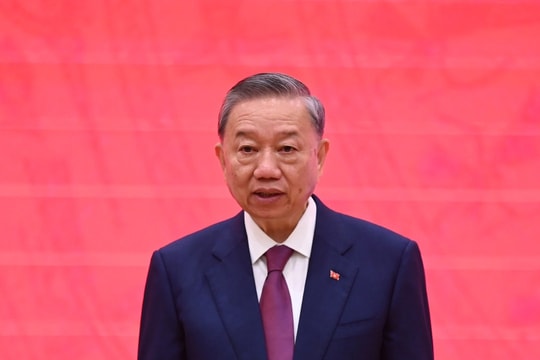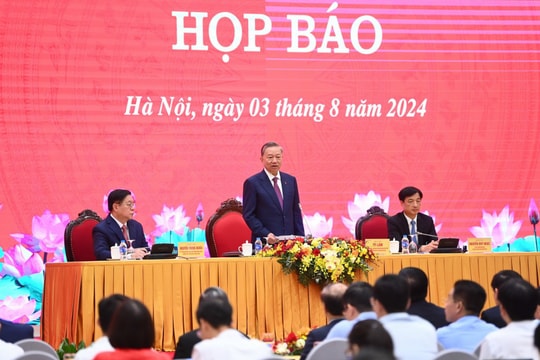International impact and diplomatic activities of the 1968 Tet Offensive
(Baonghean.vn)- The General Offensive and Uprising in the Spring of Mau Than 1968 was an important link in the chain of heroic feats in the spring in the journey of fighting the enemy and defending the country of the Vietnamese people.
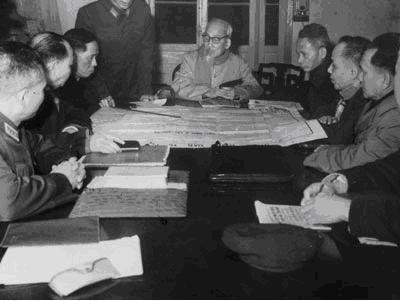 |
| Uncle Ho and the Politburo met to discuss the 1968 Tet Offensive. Photo courtesy |
1.The General Offensive and Uprising of the Spring of Mau Than 1968 was a vivid manifestation in the journey of implementing President Ho Chi Minh's teachings: "Vietnam is one, the Vietnamese people are one, the will to unify the Fatherland of the people of the whole country will never waver" and "Rivers may dry up, mountains may wear away, but that truth will never change!".
At the same time, this is an important link continuing the glorious feats of arms in the spring in the journey of fighting the enemy and defending the country of the Vietnamese people. From the Hai Ba Trung uprising in the spring of 40 to the Ly Bi uprising, establishing the Van Xuan state in the spring of 544; to the attacks in the spring of 938, 981, 1077, 1258; especially the Tet Ky Dau 1789 attack under the leadership of the cloth-clothed hero Nguyen Hue - Quang Trung defeated 200,000 Qing troops. The Mau Than Spring event in 1968 was a continuation of the tradition, but developed in new conditions, combining both attacks and uprisings under the leadership of the Party and President Ho Chi Minh, and then 7 years later, the resistance war against the US to save the country also ended with the Great Victory in the spring of 1975.
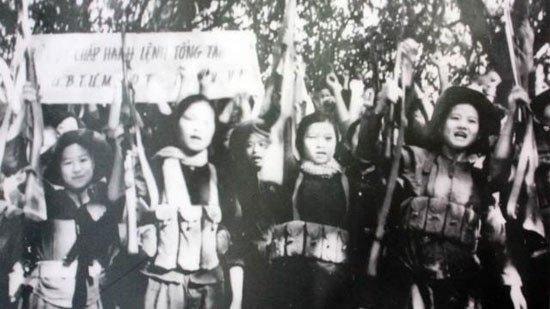 |
| Female militia in agencies under the Central Committee of the National Liberation Front of South Vietnam ready for the Mau Than General Offensive and Uprising. Photo courtesy |
Although the 1968 Mau Than Spring General Offensive and Uprising did not achieve all its set goals and our forces suffered heavy losses; although there were still many issues that needed to be learned from, especially in terms of military strategy, it marked the remarkable maturity of the Southern revolution. This can be considered a great rehearsal for the general offensive and uprising to completely liberate the South later, because from the opening gunshots of the 1968 Mau Than Tet, the following general offensives and uprisings in 1968 made the US's "Limited War" strategy go bankrupt, forcing them to de-escalate the war and sit at the negotiating table at the Paris Conference from 1968.
2.The 1968 Tet Offensive and Uprising “caused a strong shock to public opinion not only in the United States but also around the world.” It directly impacted the thinking and actions of American officials and military, putting the United States in a state of “crisis of confidence” after the 1968 Tet Offensive, forcing the United States to adjust a number of policies in international relations.
The Mau Than 1968 event has attracted many scholars and historians around the world to research and explain its aspects; it was a hot topic of international press and public opinion, leaving an echo for decades in the minds of those who directly participated in the war and many others. In particular, from closely following the event, peace-loving people around the world increasingly admired the fighting spirit and supported the just war of the Vietnamese people; it had a strong impact on the movement to demand the US end the war of aggression against Vietnam.
American commentator B.Ridgway compared the Tet Offensive to the Battle of Waterloo in 1815; others compared the surprise to the Battle of Pearl Harbor in 1941. American journalist D.Oberdoifer (who witnessed the Tet Offensive) wrote in his work “Tet” that: “The full significance of the 1968 Tet Offensive is beyond our comprehension” and “this is a major turning point event of our time”.
American historian G. Kolko stated in his work Anatomy of a War (published in 1985): “With the 1968 Tet Offensive, Vietnam became America’s first foreign war since 1882, causing a deep social and internal crisis and a political division.” Former US Ambassador to Saigon, M. Taylor, said: the events of January 31, 1968 and the attacks of the Vietnamese liberation army reported by the US press in the form of large headlines shown on television screens made most of the American people and some American officials terrified, it took them a long time to recover and in some cases, that recovery was never restored. The real surprises of the 1968 Tet Offensive were not that the enemy launched a large attack but that they launched many fierce attacks at the same time.
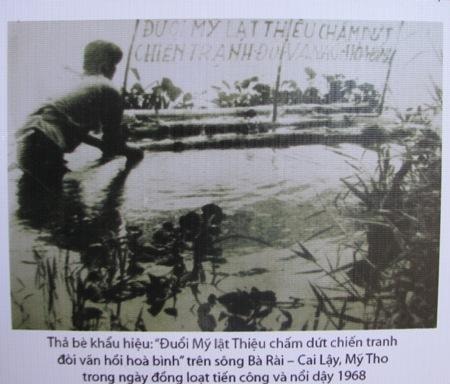 |
Even those who supported President B. Johnson's war policy admitted: "The 1968 Tet Offensive showed that the 500,000 US troops were extremely insufficient, unable to repel and subdue the Viet Cong." On March 26, 1968, the US President's senior advisory group issued a warning: "The US must begin to take measures to withdraw." After Secretary of Defense R.Mc. Namara resigned on February 29, 1968, his replacement, Clark Clifford, also said that the war in Vietnam was "like a bottomless barrel" and "no matter how many troops the US sent, the enemy could still respond."
The media in the US, including the military, political circles and some American scholars, spent a lot of effort to explain the impact, secrecy and surprise of the Tet Offensive. The press highlighted this event and the untimely reaction of the US military and the anti-war movement that flared up fiercely in the US.
Therefore, since 1968, Tet, which was originally a traditional custom in Vietnam (and some Asian countries), has become a proper noun with different meanings in the memory of Americans, especially for those who directly participated in the war. Since then, Tet has become an obsession and shock for many high-ranking leaders and American and puppet soldiers. The Tet Mau Than event "gave America a sudden shock, disrupted the deployment, broke the combat plan; brought the scene of war into every American family, into the US Congress; made people realize that the story of "victory" in Vietnam that the Pentagon spread was all fake".
In the post-Tet “nightmare”, the situation in the United States became chaotic like never before in history. The American people in many places rose up against the war of aggression in Vietnam, protesting to demand the US government withdraw its troops. The anti-war fire flared up fiercely, becoming a confrontation between the government and the American people. Typical examples were the protests of the American people in San Francisco, California, and the protests of students at Kent State University, Ohio.
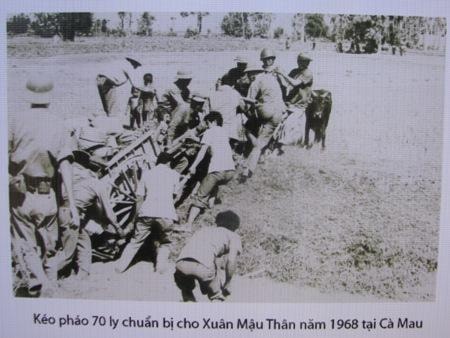 |
A former Washington news reporter said: The Tet Offensive showed the American people that the war was not going away, and people began to pay more attention to it. American volunteers began to protest the war, even those in Vietnam. They wrote letters home, publicly protesting the war.
So there was a shift, a change in attitude towards opposing the war, which grew and grew. Actor Dick Hughes, one of the 16 million young Americans who burned their cards and resisted the draft, spoke about the haunting of Mau Than 1968: This war always haunted my mind. On TV, we always saw the battles, the dead bodies and what was happening in Vietnam was terrible. I decided I had to do something for Vietnam. So I went to Vietnam to do social work.
On a global scale, the Tet Offensive and Uprising had an impact, bankrupting the US military strategy of “flexible response”, forcing those in power, including the US military, to admit that the US could lose the war in Vietnam. The consecutive heavy defeats in Vietnam and many other places seriously weakened the US's forces and position.
In 1969, R. Nixon became President in a difficult and dark situation unprecedented in the history of the United States. Faced with that situation, R. Nixon proposed a new doctrine to adjust the "strategy" to continue plotting to dominate the world, maintain its position and interests. In particular, the policy of "being ready to negotiate" if it is beneficial for the United States and to divide and provoke socialist countries and revolutionary forces in the world. It can be said that the birth of the R. Nixon doctrine was a step backward and a manifestation of passivity compared to "Trumanism" and "Kennedy strategy", wanting to negotiate with Vietnam but from a position of strength and under conditions favorable to the United States.
Therefore, as the Americans say, although “America’s involvement in Vietnam was the most widely reported war in history,” American policymakers, generals, historians, writers, journalists, etc. still diligently researched and wrote extensively about the Tet Offensive, increasingly leading to the admission of America’s failure in Vietnam.
The 1968 Tet Offensive and Uprising was joined by the press systems of many countries, spreading information quickly throughout the world, attracting the support of progressive humanity. The Washington Post, the New York Times, the British news agency Reuters, the French newspaper Le Monde (The World)... all commented on the strength of the Vietnamese revolution and the weakness of the American empire in the 1968 Tet Offensive. And the French newspaper Le Figaro on February 2, 1968 praised: The famous offensive of the Viet Cong shows us the ingenuity of the commanders in guiding this war, both military and political. Domestically, they have just achieved a great victory; they have shown the Vietnamese people that they can fight anywhere and anytime.
Many newspapers of communist and workers' organizations in capitalist countries expressed their admiration for our people's fight against the US through the Mau Than Tet event. Countries in the socialist bloc at that time always expressed their joy for the Vietnamese people. Almost all newspapers of socialist countries on January 31, 1968 and February 1, 1968 published articles expressing joy at Vietnam's victory.
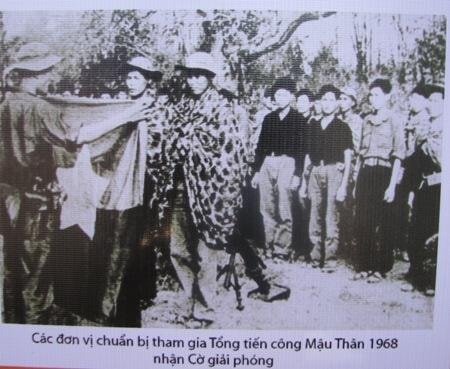 |
In it, the Polish People's Forum wrote: "The daring and well-prepared battles of the South Vietnamese patriots are a development of the large-scale attacks that the Liberation Army launched in January this year at times, in places and in the form of its own choosing. The Liberation Army has practically tied up and handcuffed all the enemy's fighting forces in all the provinces."
3. Many researchers assert that without the Mau Than Offensive of 1968, there would not have been negotiations in Paris to sign the 1973 armistice agreement and successfully end the resistance war against the US to save the country in the spring of 1975. As the Politburo assessed the Mau Than General Offensive and Uprising of Spring 1968: “The victory had extremely important strategic significance, creating a decisive turning point in the war, marking the failure of the US's local war strategy, forcing the US to switch to a defensive strategy on the entire battlefield, to sit at the negotiating table with us in Paris, to end unconditional bombing, to advocate de-Americanization of the war, and to begin a period of de-escalation of the war.
In fact, on December 28, 1967, the Politburo meeting chaired by President Ho Chi Minh approved the 1968 strategic plan. Our Party's policy during this period was to "open the way for the enemy to enter negotiations in the direction most beneficial to us", "force them to come and sit with us and negotiate with us"; clearly defining, "we can only win at the conference table when we win on the battlefield", "along with the military and political struggles in the South, we need to attack the enemy diplomatically, coordinate with those two struggles to win even greater victories", "military and political struggles in the South are the main factors deciding victory on the battlefield, laying the foundation for victory on the diplomatic front".
On the one hand, we still seek the sympathy, support and assistance of international friends, especially the Soviet Union and China; on the other hand, we are still determined to maintain our independent and self-reliant policy. If before 1966, our stance was to demand that the US withdraw its troops from the South and end all acts of sabotage against the North before any talks between the two sides, then from the 13th Central Conference, our Party advocated the possibility that Vietnam would enter into negotiations if the US stopped bombing the North, without including the condition that the US must withdraw all its troops from the South as previously requested. However, the US side still resolutely put forward the condition that we must publicly commit not to take advantage of the US bombing halt to aid the South. The letter from US President Johnson to President Ho Chi Minh on February 8, 1967 clearly showed the US's stubbornness.
We want peace, we want to negotiate, but we cannot have the illusion of negotiating from a weak position, we can only negotiate from a position of superiority and military dominance. The 1968 Tet Offensive and Uprising was a strategic move, creating pressure on the diplomatic front with the US. The majority of American society, including high-ranking officials, congressmen, and powerful financial groups, had to change their views and no longer support Johnson's war policy.
Military failure combined with the influence of international public opinion and the pressure of the peace movement, anti-war movement, and other factors had a great impact on the US attitude and the development of diplomatic activities. This forced US President Johnson to publicly declare a unilateral end to the war of destruction in the North (from the 20th parallel and above), ready to send representatives to negotiate with the Government of the Democratic Republic of Vietnam; and decided to gradually withdraw US troops from South Vietnam.
Accordingly, on May 13, 1968, the first official negotiation between the two sides - representatives of the Government of the Democratic Republic of Vietnam and representatives of the United States Government - took place in Paris, France. In 1968, many meetings took place but no important issues were resolved. After that, the diplomatic struggle between us and the United States mainly revolved around the form and composition of the Paris Conference; finally, it came to the form of a four-party conference between the Democratic Republic of Vietnam, the National Liberation Front of South Vietnam (later the Provisional Revolutionary Government of the Republic of South Vietnam), the United States and the Republic of Vietnam (the Saigon government).
On June 8, 1969, President R. Nixon announced the first withdrawal of 25,000 troops from South Vietnam. On June 10, 1969, the Provisional Revolutionary Government of the Republic of South Vietnam decided that the delegation of the National Liberation Front of South Vietnam at the Paris Conference would now become the delegation of the Provisional Revolutionary Government of the Republic of South Vietnam, headed by Ms. Nguyen Thi Binh, Minister of Foreign Affairs. On August 4, 1969, Dr. Henry Kissinger, national security advisor, secretly met Minister Xuan Thuy for the first time in Paris.
On August 25, 1969, President Ho Chi Minh replied to US President Nixon's letter, stating: "You expressed your desire to act for a just peace. To do so, the US must end the war of aggression and withdraw its troops from South Vietnam, respect the right to self-determination of the people of South Vietnam and of the Vietnamese nation, without foreign intervention. That is the right way to resolve the Vietnam issue in accordance with the national rights of the Vietnamese people, with the interests of the US and the desire for peace of the people of the world. That is the way for the US to withdraw from the war with honor."
During nearly 5 years (starting on May 13, 1968 and ending on January 27, 1973), many activities took place, with 201 public meetings, 45 high-level private meetings, 500 press conferences, 1,000 interviews, and hundreds of rallies in support of Vietnam. On January 27, 1973, the Paris Agreement on ending the war and restoring peace in Vietnam was officially signed, creating conditions to realize President Ho Chi Minh's ideology: "For independence, for freedom, fight to make the Americans leave, fight to make the puppets fall". The great victory in Spring 1975, liberating the South, unifying the Fatherland, and bringing the whole country to unify and build socialism is the vivid reality of his ideology.
Dr. Le Duc Hoang,
Central Propaganda Department
| RELATED NEWS |
|---|

.jpg)



